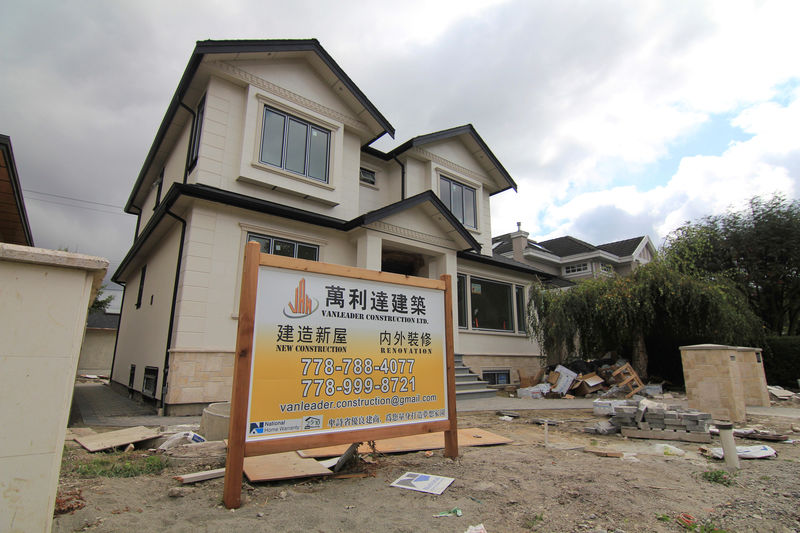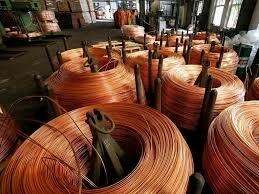 © Reuters. FILE PHOTO: A contractor’s sign stands outside a mansion currently under construction in Vancouver
© Reuters. FILE PHOTO: A contractor’s sign stands outside a mansion currently under construction in VancouverBy Julie Gordon and Andrea Hopkins
VANCOUVER/OTTAWA (Reuters) – Foreign buyers in Canada’s two largest housing markets are focused on larger and more expensive homes, new data from Statistics Canada shows, confirming industry lore that their money drives up top-end real estate prices in Vancouver and Toronto.
While non-residents, defined as people living outside Canada, own less than 5 percent of residential properties in the two cities, those homes are worth significantly more than those held by residents, according to a Reuters analysis of Statscan data released this week.
Public debate over the role of foreign investment in Canada has reached a fever pitch, with locals saying price increases of 60 percent in Vancouver and 40 percent in Toronto over the past three years are keeping them out of the market.
In Toronto, the average value of a detached home built in 2016-2017 and owned by a non-resident is C$1.7 million ($1.3 million), a whopping 48.7 percent higher than C$1.1 million for residents. Those values for Vancouver average a lofty C$2.5 million for non-residents and C$1.8 million for residents for a difference of 40.6 percent.
Among all detached homes, not just new ones, those owned by non-residents were larger than residents’ houses by 13.1 percent in Vancouver and 2.2 percent in Toronto.
The new data reinforces anecdotal evidence that foreign buyers tend to focus on the most affluent neighborhoods, said Jane Londerville, a real estate professor at the University of Guelph in Southern Ontario.
“If the goal is to get a couple million dollars out of their country and put it in a very safe, calm economy, you might as well buy a C$2 million house,” she said. “So they’re buying in Forest Hill in Toronto and Kerrisdale in Vancouver.”
The Statscan data does not look at sales, or flow, but rather is a static snapshot of ownership of housing stock at the time of collection.
FLIP IT OR RENT IT
Foreign capital also targets new condos, with new Vancouver units owned by non-residents valued at 19.7 percent more than those owned by residents. In Toronto, the difference is 11.2 percent.
“There’s been a huge spike in foreign ownership in newer buildings,” said Diana Petramala, senior researcher at Ryerson University’s urban policy center in Toronto.
Toronto realtor David Fleming said high prices and tight supply increasingly meant only foreign investors could afford to buy into the new projects, whose pre-construction prices are “out of this world.”
“What it has really become is essentially a safety deposit box for those with foreign money,” Fleming said. “Those buyers can park the money, whether they intend to flip it before it is finished or take possession and rent it.”
A 15 percent foreign buyers tax was imposed in Vancouver in 2016 and Toronto in 2017 amid a backlash against foreign buyers, particularly from China. This has cooled both markets at least temporarily.
Fusion Media or anyone involved with Fusion Media will not accept any liability for loss or damage as a result of reliance on the information including data, quotes, charts and buy/sell signals contained within this website. Please be fully informed regarding the risks and costs associated with trading the financial markets, it is one of the riskiest investment forms possible.
Source: Investing.com


























